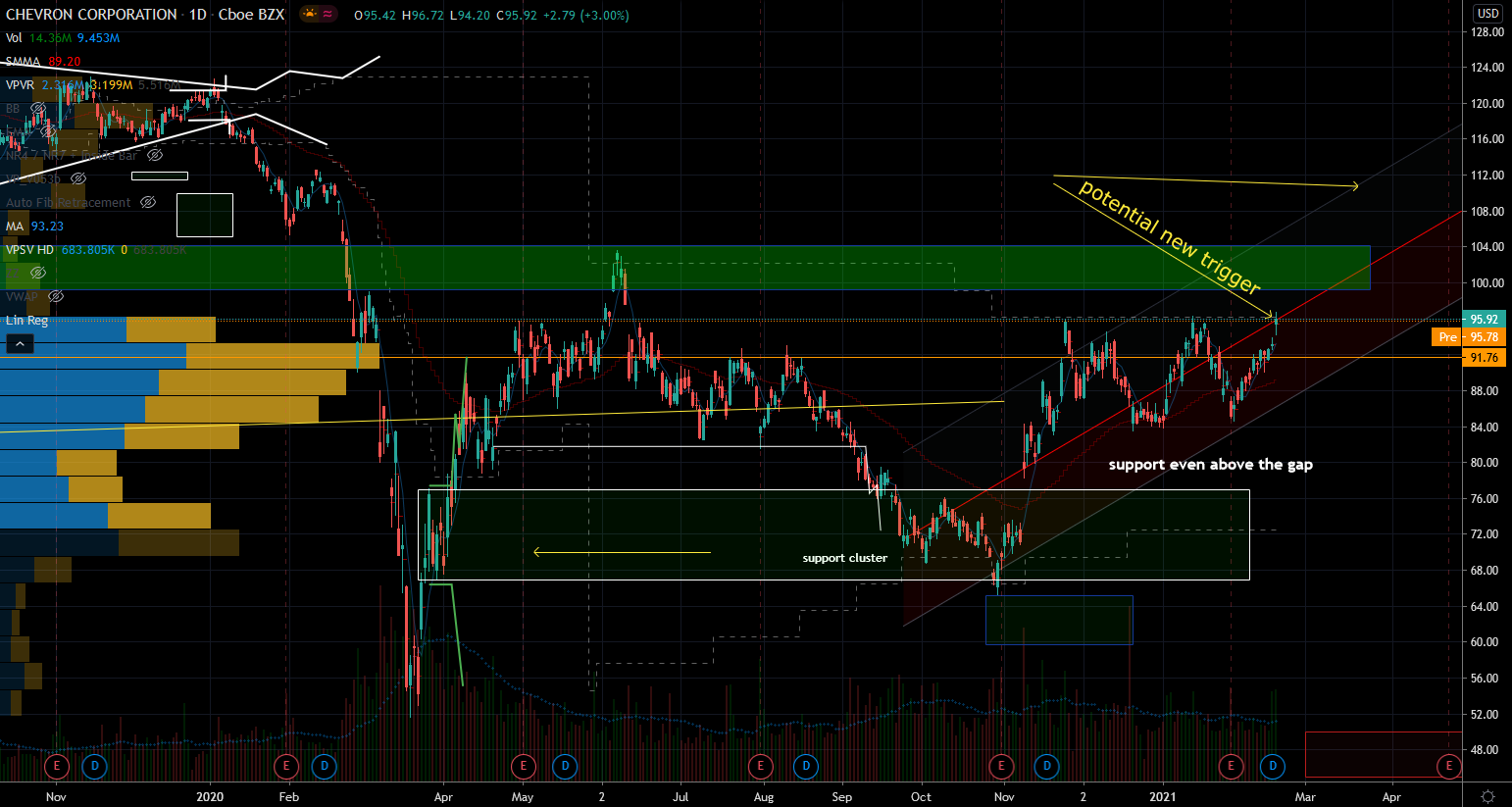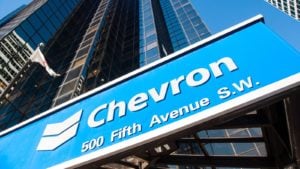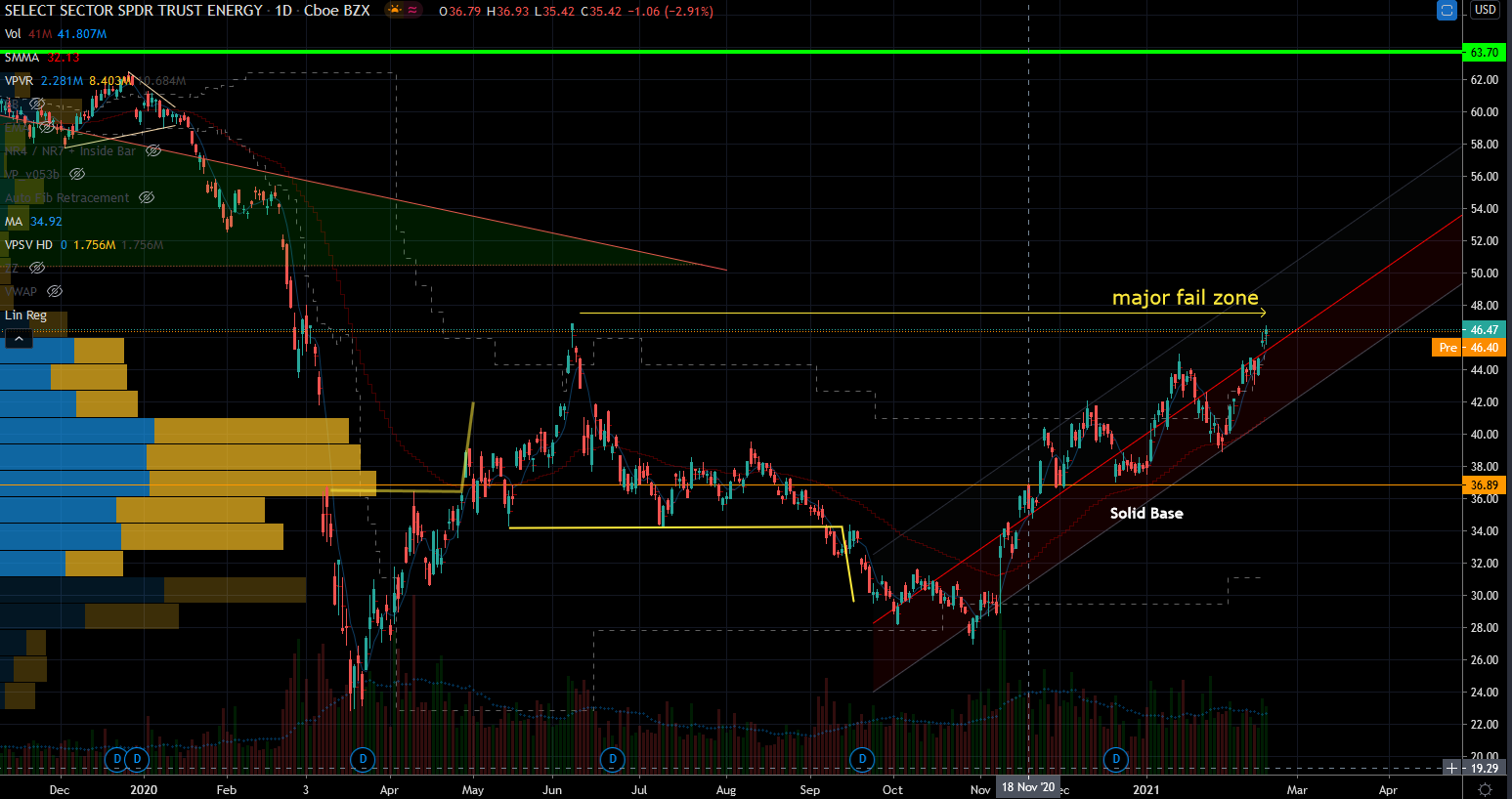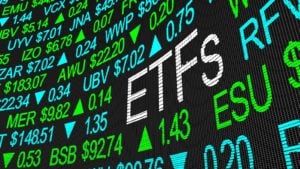Wall Street has a tough time breaking old habits. Today we’re going to examine the opportunity with energy stocks.
Last year, major investors committed to being more Earth friendly and the concept of ESG investing took flight. Global shutdowns gave the environment a big break. Humans drastically reduced the use of fossil fuels. For one thing, air travel fell 90% and people stopped driving to work. Finally, telecommuting became a reality. Zoom (NASDAQ:ZM) is now a verb that we use often.
While the pandemic brought environmental relief, it decimated energy stocks. They are making a comeback, especially recently. From October lows, the sector rallied nonstop and as much as 50%.
My goal here is to restore some realism. Yes, energy’s breakout is real and shorting is not wise. But starting long now is getting in late. I’ve been bullish energy but only after corrections. When the experts hate them, that’s when I like them most. Now we have the exact opposite and the chase is weeks old.
If we ignore last April’s ridiculous negative low mark, crude oil prices are up 218% in less than a year. To chase now means a very long-term commitment. Therein lies the problem. The world is committed to using up less oil. This doesn’t support an out-of-control oil price.
The main part of my prior strategy was to own energy stocks for the fixed income. Thanks to loose global economic policies there is no reward to parking cash. U.S. bonds are the only major instruments that still have some yield. For the last two months, those rallied about 150%. The 10-year and the 30-year bonds now pay 1.3% and 2.05% respectively.
But even that pales in comparison to what stock dividends offer. Energy stocks are at the upper echelon of that group. However, I dislike chasing them for capital expansion. I’d rather miss whatever incremental upside occurs and catch them on the next dip.
Smart money bought energy stocks on prior dips. Here are three that meet that criteria:
Energy Stocks to Buy on a Dip: Exxon Mobile (XOM)


We will start with Exxon Mobile, which pays the highest dividend. The reward for owning its shares is 7%, and the downside risk was minimal until recently. I’ve written many times about owning it for the sake of income. But I’ve never done that in a chase of a breakout, especially this late. My most recent call to action was when XOM was less than $35 per share. That was before a 54% rally, and this is about where I would cash that in.
Fundamentally they’re not expensive and they shouldn’t be because they are shrinking businesses. They are still struggling since consumption is still drastically down. Their operations are losing money from the novel coronavirus hiccup. On the bright side, their price-to-sales are barely above 1. From that sense there’s not a lot of hope in the stock price now.
The confusion on Wall Street is that this rally means an increase in demand. In reality we are merely trying to get back to even. Also remember that there is an additional negative current coming from the onslaught of electrical vehicles. The scariest part is that several of the major car manufacturers like General Motors (NYSE:GM) and Ford (NYSE:F) have committed to completely cutting out fossil fuel vehicles. That alone should cause people to panic out of these stocks. The switch will take years but the plan is in motion.
We now have a situation where prices are going into $55 per share. This was a prior failure level and there will be sellers there. This precludes it from being an obvious entry point. If long the stock I should consider exiting it or locking in some profits. Ideally, I’d wait a few days for the chance of buying it at least 8% lower. If the rally continues, the bulls have a shot at exceeding $55 per share. My plan would be to either buy-the-dip into support or try to buy-the-rip after the breakout. If I miss so be it.
Chevron (CVX)


Chevron stock, for whatever reason, trades much better than Exxon. The price action on the charts is more constructive. It pays a little bit lower dividend, but not enough to sway the decision one way or another. For all intents and purposes they carry almost the same exact thesis. Just to confirm that I am not a hater, last March I called for buying CVX stock. That was one day before the absolute bottom.
When things got tough last year, both management teams committed to guarding the yield. They cut back on capital expenditures and stayed true to their promises. These are confident teams ready for anything. Having survived the toughest test of all time makes them bankable.
CVX is also running into a difficult level on the charts. The zone from $97 through $104 per share is sticky. In early May, the whole sector looked unbeatable there until it crashed in a big way. I am not predicting the same outcome, but it’s definitely something to consider. Starting new longs going into such an accident scene is taking a leap of faith.
On a positive note, CVX stock looks in much better shape to finish the spike. There is an additional 5% even past current levels. So if you twist my arm to own any of the three, I would choose CVX. The metrics are about the same and the management styles also. The only difference is in the charts, and that’s what really matters in the end.
Energy Select Sector SPDR Fund (XLE)


The XLE stock is back to almost exactly where it failed on June 8. This was also a level of major contention in March when the Covid-19 crash was ongoing. The trading algorithms remember prior pivot points and this influences their behavior. Therefore I expect resistance coming into it.
Technically, the stock broke out from $45 per share. The upside target could extend to fill the gap at $54 per share. I don’t dispute that fact at all. But I do want to caution against starting new positions now expecting an easy ride. From here on the easy work has passed and it’s going to be a slog. Sellers tend to lurk where they’ve been stuck for months.
It is also important to note that this is an exchange-traded fund. Usually investors use those for diversification but not in this case. I like the fact that almost 45% of it is from Exxon and Chevron stocks. Those are the best-of-the-best and I don’t want the rest that come with them. As we slide down the echelon of energy stocks that make up the XLE, viability questions arise. I want no exposure to that. This is the main reason why of the three stocks today this would be my least favorite. It pays the lowest dividend yield and it carries the most risk.
I have one final potentially negative point to make. Oil prices are a rigged market. They have an international cartel to do that. OPEC exists for that exact purpose. They control prices to keep a favorable balance for their members. Current crude oil prices have risen to the point that threatens their position. Above $60 per barrel causes OPEC to lose market share. The Western producers can then prime their pumps as their margins expand. I bet that soon OPEC will put downside pressures on prices. I for one would welcome that since I’m already paying almost $4 per gallon to fill up in California.
On the date of publication, Nicolas Chahine did not have (either directly or indirectly) any positions in the securities mentioned in this article.
Nicolas Chahine is the managing director of SellSpreads.com.
